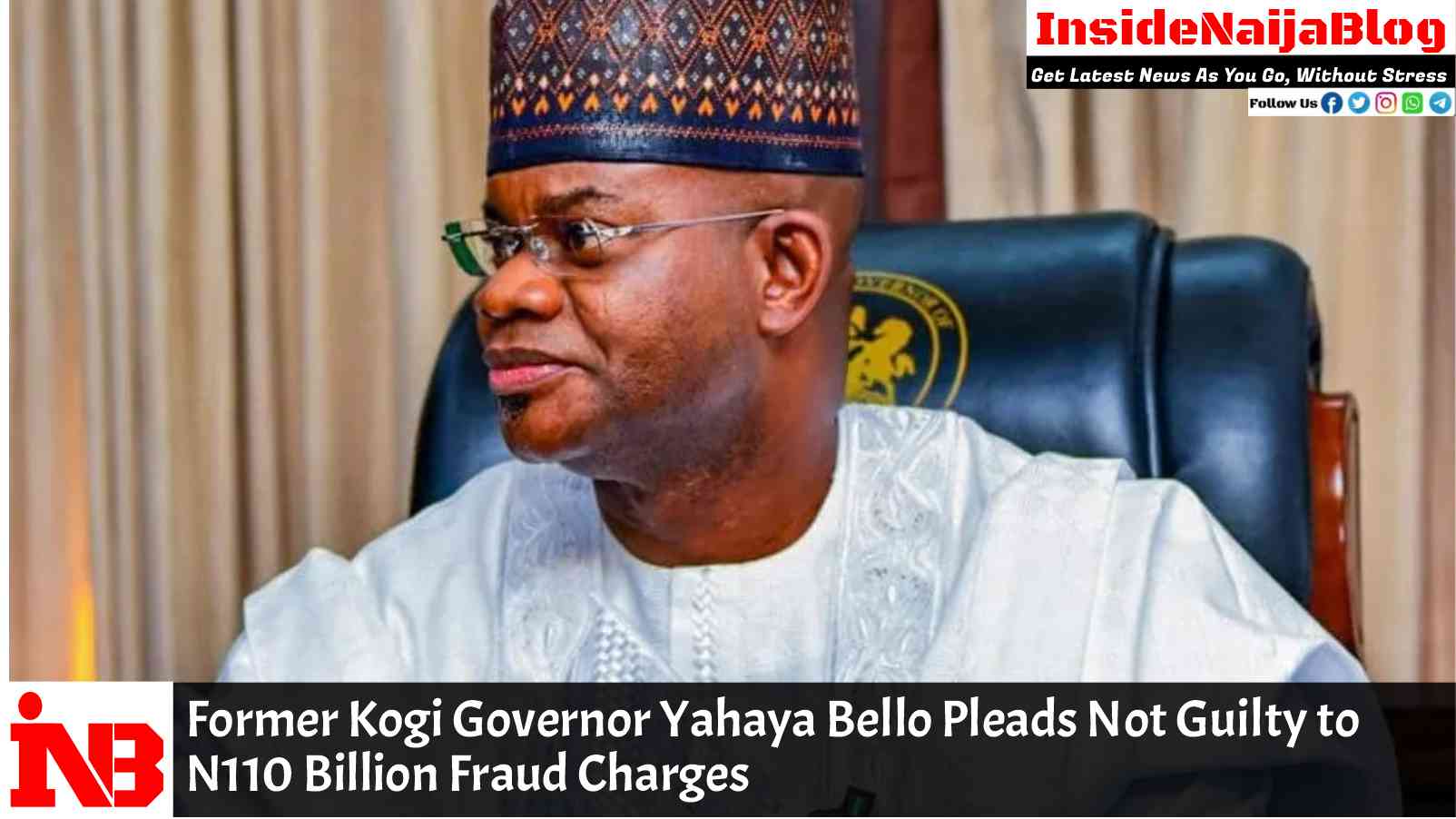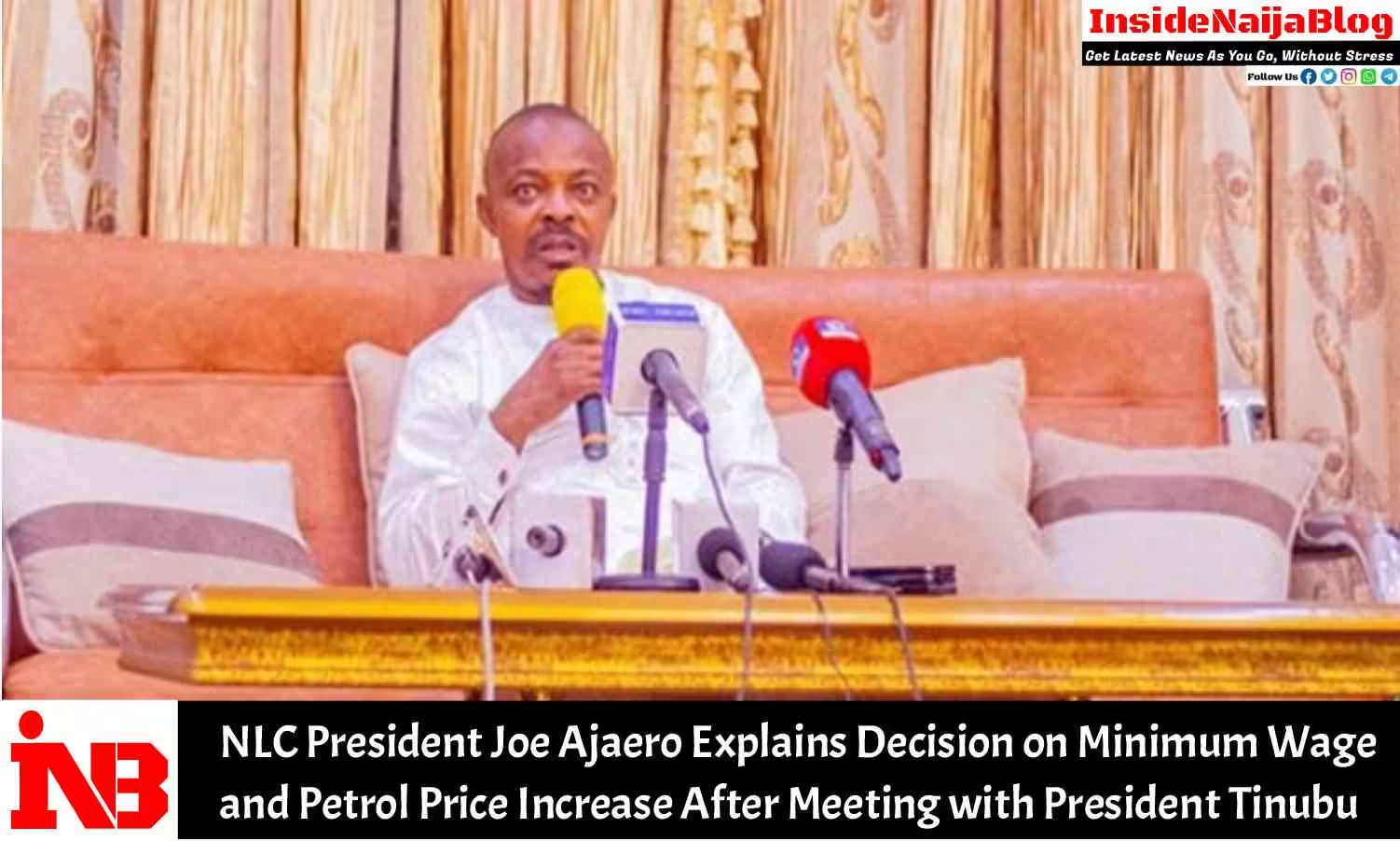Alhaji Yahaya Bello, the immediate past Governor of Kogi State, pleaded not guilty on Wednesday to a 16-count charge brought against him by the Economic and Financial Crimes Commission (EFCC). The case, which centers on allegations of a N110 billion fraud, was heard before Justice Maryann Anenih at the Federal Capital Territory High Court in Maitama, Abuja.
Bello was arraigned alongside two co-defendants, Umar Oricha and Abdulsalami Hudu, both of whom also face charges related to conspiracy, criminal breach of trust, and possession of unlawfully acquired property. The charges are contained in case file CR/7781. The EFCC alleges that Bello misappropriated public funds during his tenure and used the money to acquire multiple properties and assets in Nigeria and abroad.
High-Profile Properties and Financial Transfers
According to the EFCC, Bello diverted funds from the Kogi State treasury to purchase the following properties:
- 35 Danube Street, Maitama, Abuja – Acquired for N950 million.
- 1160 Cadastral Zone, Gwarimpa II, Abuja – Valued at N100 million.
- 2 Justice Chukwudifu Oputa Street, Asokoro, Abuja – Purchased for N920 million.
- Block D, Manzini Street, Wuse Zone 4, Abuja – Acquired for N170 million.
- Hotel Apartment at Burj Khalifa, Dubai – Valued at over 5.69 million Dirhams (approximately N1.8 billion).
- Block 18, Gwelo Street, Wuse Zone 4, Abuja – Purchased for N60 million.
- 9 Benghazi Street, Wuse Zone 4, Abuja – Bought for N310.4 million.
In addition to the property acquisitions, the EFCC detailed financial transactions involving large sums of money. The former governor and his associates allegedly transferred $570,330 and $556,265 to accounts held with TD Bank in the United States. The prosecution also revealed that Bello unlawfully received N677.8 million from Bespoque Business Solution Limited.
Court Appearance and Bail Consideration
Bello, dressed in a white caftan and blue cap, appeared in court at approximately 9:45 a.m. He surrendered to the EFCC after a prolonged search and evasion that had drawn significant public attention. His voluntary appearance in court marked the end of a “hide-and-seek” episode with the anti-corruption agency.
Legal analysts believe the trial could set a precedent for holding public officials accountable for financial mismanagement and corruption. Bello’s legal team is expected to file for bail while contesting the charges in the coming days. The EFCC, however, may oppose bail on the grounds of the gravity of the allegations and the risk of flight.
Public Reaction and Broader Implications
The case has garnered widespread attention, especially given the scale of the alleged embezzlement and the high-profile nature of the defendant. Anti-corruption advocates see this as a test of Nigeria’s commitment to tackling financial crimes and holding powerful individuals accountable.
First elected in 2015, Bello served as Kogi State governor for two terms. His administration faced multiple controversies, including allegations of mismanagement and non-payment of workers’ salaries. His prosecution marks a significant development in the EFCC’s campaign against corruption in the public sector.
Observers are keenly watching how the trial unfolds, with many seeing it as a litmus test for the judiciary’s independence and the government’s resolve to combat corruption at all levels of governance.




